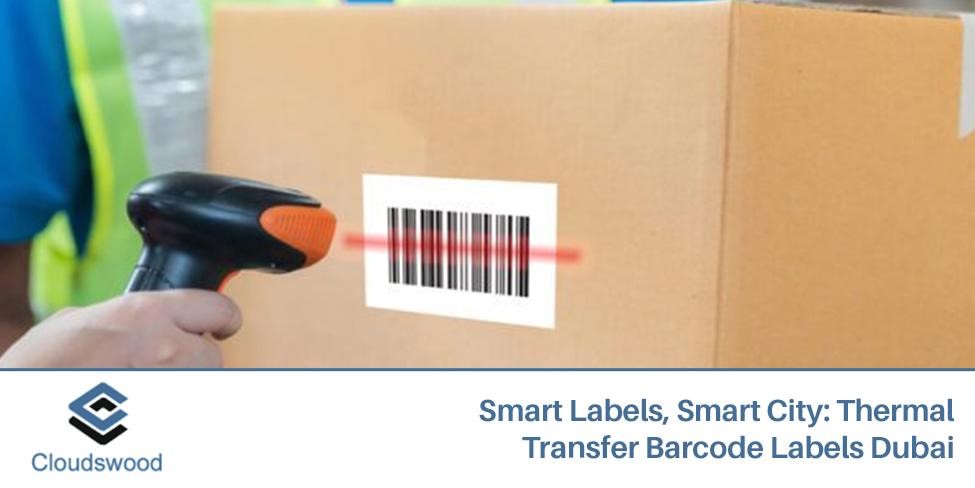Significance of Labels in Dubai’s Smart City Initiative
Labels are important in Dubai’s Smart City Initiative as they facilitate seamless communication between digital and physical systems. Intelligent labels, particularly those that use thermal transfer barcode labels Dubai, are information portals across various industries. These labels help Dubai achieve its goal of creating an innovative and connected urban environment.
They do this by enhancing visibility in the supply chain, optimising logistics, and fostering sustainability. These labels enable businesses to track and manage assets efficiently, streamline operations, and align with Dubai’s commitment to technological innovations and efficiency on its journey to becoming a smart city.
Overview of Thermal Transfer Barcode Labels Dubai
Thermal transfer barcodes, using a tape-based printing method, offer durable and long-lasting labels for various applications. This technology transfers ink directly from the ribbon to the label through controlled heating, creating high-resolution and enduring prints.
Widely used in retail, logistics, and manufacturing, these labels are essential for data tracking and management. Recognised for high-quality images, environmental resistance, and adaptability, thermal transfer barcode labels are vital tools in diverse industries.
Dubai’s Smart City Vision
Dubai’s Smart City Vision is a comprehensive urban transformation that reflects a forward-thinking approach. Fueled by cutting-edge technology, the vision aims to create an intelligent and seamlessly connected city. This initiative integrates digital solutions into diverse sectors, including infrastructure, transportation, healthcare, and education.
Dubai’s Smart City Vision, with its commitment to sustainability and efficiency and an improved quality of living, positions the city to be a leader in harnessing tech to improve urban living. Dubai’s Smart City Vision envisions a world where data, artificial intelligence, and smart infrastructure will redefine the urban landscape, creating a sustainable, efficient, and technologically advanced cityscape.
Evolution of Dubai into a Smart City
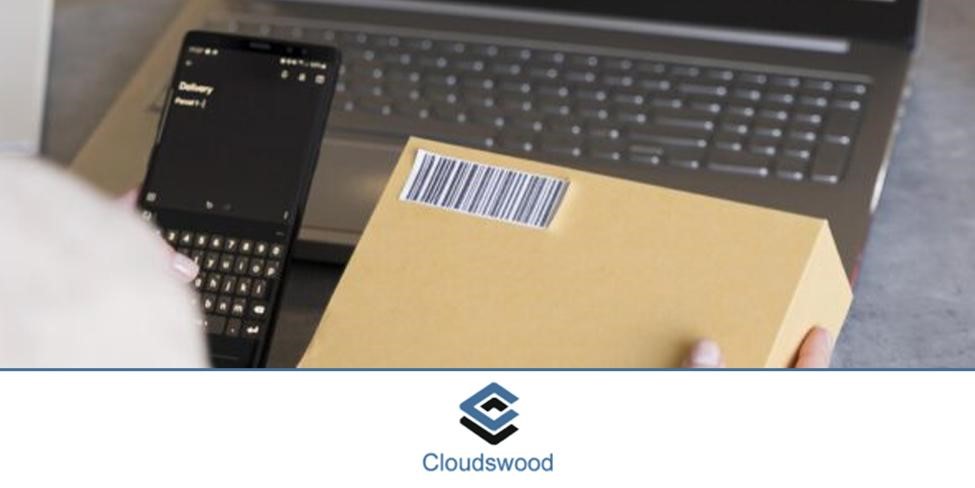

Dubai’s Smart City transformation, fueled by a visionary leader, technology commitment, and strategic investments, is remarkable. The city has invested strategically in digital advancement, innovative infrastructure, and sustainability, utilising modern technologies like AI, data analytics and IoT.
The evolution of intelligent solutions integrates them in all areas, from energy management to transportation, and improves the quality of public services. Dubai’s Smart City journey revolutionises urban development, creating an intelligent, connected, resilient, and sustainable city.
Integration of Technology in Urban Planning
Integrating technology into urban planning reflects Dubai’s commitment to a futuristic, efficient cityscape. Dubai, a smart city, has used technology strategically to improve urban planning. This integration uses data analytics, real-time monitoring, and innovative platforms to optimise resource allocation, traffic management, and public services.
Dubai’s urban planning initiatives are seamlessly integrated with technology, from intelligent infrastructure projects to digital platforms that engage citizens. This innovative approach ensures that the city is managed effectively and creates an urban environment that is dynamic and responsive to changing needs.
Role of Thermal Transfer Barcode Labels
Thermal transfer barcode labels are essential for streamlining data and improving operational efficiency in various industries. These labels, which serve as information carriers for tracking, identifying, and managing assets, products, or inventory, enable accurate tracking and identification.
Its versatility and reliability make this technology indispensable in retail, manufacturing, logistics, and distribution, contributing to increased supply chain visibility. Thermal transfer barcode labels are essential for enhancing transparency and reducing errors. They also optimise processes by facilitating communication between digital and physical systems.
Understanding Thermal Transfer Technology
Thermal transfer barcode labels Dubai is an advanced printing technique that creates durable, high-quality labels. Thermal transfer ribbons transfer the ink onto labels through controlled heat. This results in long-lasting, precise prints.
Thermal transfer technology, widely recognised for its versatility and resistance to environmental factors, is suitable for various surfaces. Thermal transfer labels are popular among businesses because of their superior print quality, durability, and accuracy.
Key Features and Advantages
Thermal transfer barcode labels are characterised by their high-resolution printing and exceptional durability. Thermal transfer ensures that these labels provide reliable data representation and long-lasting information. They are suitable for various applications due to their adaptability to different surfaces and environmental resistance.
Thermal transfer labels are versatile and precise, allowing businesses to improve their efficiency with asset tracking, inventory control, and product identification. Thermal transfer barcode labels are a good choice for industries that want to ensure accuracy and longevity.
Applications Across Industries
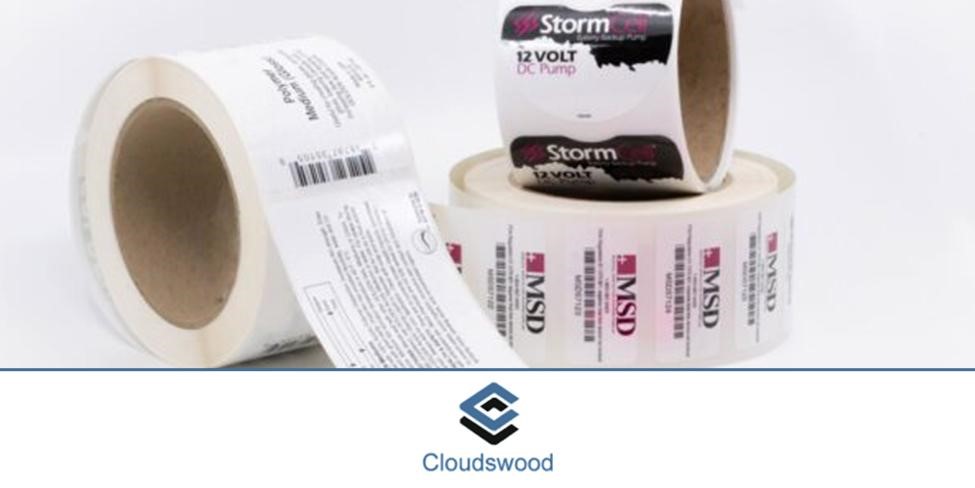

Thermal transfer barcodes are used in many industries and are vital in improving operational efficiency. These labels are used in retail to streamline checkout processes and ensure accurate product identification. They are used in logistics and supply chains to provide precise tracking and efficient inventory control. Their durability benefits the manufacturing industry, ensuring product longevity under challenging environments.
Thermal transfer barcode labels Dubai are indispensable in the healthcare industry, where the accuracy of patient data is crucial, and in warehouse management for better organisation. They are a popular solution in Dubai for companies of all sizes and sectors due to their adaptability and resistance to harsh environments.
Retail and E-commerce
Thermal transfer barcode labels are vital for streamlined retail and e-commerce operations, ensuring accurate product identification, pricing, and inventory management. In retail, they label merchandise for precise and durable information presentation.
For e-commerce, these labels generate high-resolution shipping barcodes, optimising logistics and improving the customer experience. Durable in various environmental conditions, thermal transfer labels are ideal for Dubai’s e-commerce and retail sectors.
Logistics and Supply Chain
Thermal transfer barcode labels are essential for tracking and inventory management. These labels allow for accurate and efficient identification and tracking of products, packages, and shipments. They streamline the entire logistics process.
Thermal transfer labels are durable and can be read in a variety of environments, helping to ensure reliable data capture throughout the supply chain. These labels are used in warehouses and transportation. They play an essential role in reducing mistakes, improving visibility, and enhancing the efficiency of logistics operations.
Manufacturing and Warehousing
The labels are essential for product identification, tracking inventory, and quality control during manufacturing processes. Thermal transfer barcode labels Dubai are durable and can withstand harsh industrial environments. They help to organise and manage goods efficiently in warehouses.
This technology’s high-resolution printing contributes to accurate data presentation, optimising manufacturing processes and facilitating error-free tracking throughout the supply chains. Thermal transfer barcode labels are a vital component of Dubai’s dynamic industrial sector. They improve precision and efficiency for manufacturing and warehouse operations.
Improved Efficiency and Operational Impact
These labels are known for their durability and high-quality printing and contribute to streamlining processes, accurate tracking, and reducing errors. The improved data accuracy, inventory management, and product identification in retail, logistics, and manufacturing sectors results in significant time and cost savings.
The operational impact can be seen in the faster and more accurate workflows, the reduced incidence of manual errors, and an overall increase in productivity. The adoption of thermal transfer barcodes in Dubai’s dynamic and fast-paced business environment has a positive impact on efficiency. It contributes to the smooth functioning of different operational aspects.
Smart Labeling for Sustainable Practices
Smart labeling with thermally transferred barcodes enhances efficiency and aligns with sustainability, featuring eco-friendly elements that reduce energy and waste. These labels actively contribute to sustainability in supply chain processes and optimise operations in Dubai’s eco-friendly environment. Opting for thermally transferred barcodes reflects a commitment to ethical and environmentally sustainable business practices.
Eco-Friendly Aspects of Thermal Transfer Labels
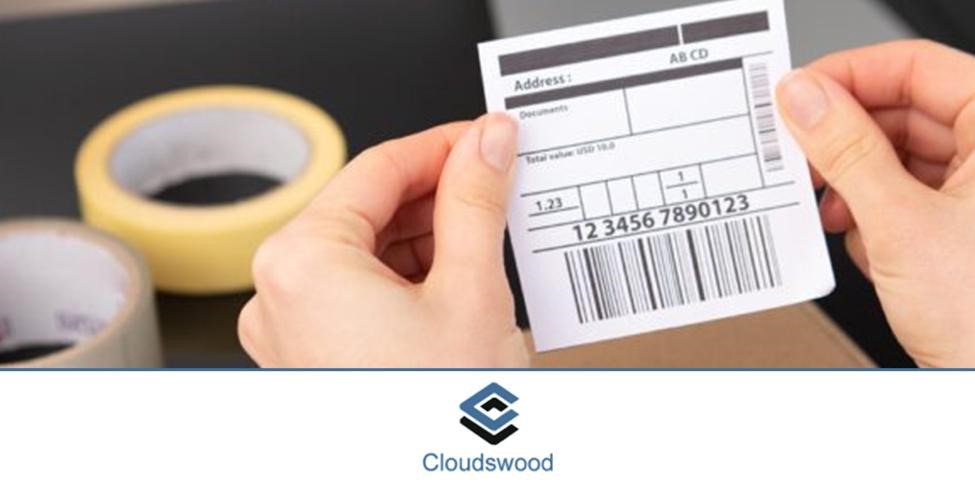

Choosing thermal transfer barcode labels Dubai is a wise option for eco-conscious businesses. These labels, besides the reduction of waste, signal the commitment to a green method of working. Lack of direct heat reduces energy use, which aligns with sustainability.
Furthermore, the flexibility of the labels prolongs the life of products, reducing the need for reprints and the overall environmental impact. In keeping with Dubai’s commitment to sustainability, choosing these eco-friendly barcode labels shows an effort to create eco-friendly labeling options.
Contribution to Dubai’s Sustainability Goals
Thermal transfer labels have eco-friendly features, reduce waste, and help save energy when printing. They help create the circular economy by prolonging time-to-market and aligning with Dubai’s vision of sustainable resource management.
As Dubai is committed to environmental issues, including barcode labels that are thermally transferred is an essential step towards sustainable goals. It is a tangible commitment to ethical business practices in Dubai’s ever-changing environment.
Challenges and Solutions
Utilising barcode labels with thermal transfer can be beneficial, but problems could be encountered. Properly storing the ribbons used for thermal transfers is essential to avoid the degradation of quality prints. External factors such as abrasion could influence the durability of labels.
The solution to these issues is regular maintenance, which includes replacing ribbons and choosing high-quality labels made of durable materials. Technology advancements have enhanced the formulation of ribbons and label materials, which have enhanced barcodes with thermal transfer in various environments.
Addressing Implementation Challenges
Businesses may initially face obstacles in selecting label materials, printer calibration, or ribbon handling. To overcome these obstacles, implement comprehensive training programs to ensure that staff are proficient in label printing and maintenance. Another effective strategy is collaboration with suppliers with experience in label printing and printer settings.
Regular monitoring and preventive practices are crucial in mitigating potential issues and ensuring smooth and successful implementations of thermal transfer barcode labels across different business operations.
Innovative Solutions for Seamless Integration
Achieving seamless integration of thermal barcode labels requires innovative solutions to address compatibility and operational concerns. labels with standardised formats and integration-friendly designs enhance interoperability. Intelligent label management software enables real-time tracking and customisation.
Automating printing processes with user-friendly thermal transfer printers ensures smooth integration. Collaborating with supportive vendors offering comprehensive support and training helps businesses navigate challenges effectively, streamline processes, and maximise the benefits of thermal barcode labels across industries.
Future Trends in Smart Labelling
Smart labeling is a growing industry, and thermal transfer barcodes are no exception. These labels will continue to evolve in line with technology. The IoT integration advances will allow labels to transmit data in real-time, improving supply chain visibility and asset tracking. RFID integration will continue to expand and improve data capture accuracy. As businesses emphasise environmental concerns, they will also use eco-friendly label materials and printing technologies.
Machine learning and artificial intelligence will play an increasingly important role in label data analysis, providing valuable insight for decision-making. These future smart labeling trends will revolutionise how businesses manage their data and optimise their processes as Dubai continues to embrace innovations.
Emerging Technologies in Barcode Labeling
New technologies, like thermal transfer barcode labels Dubai, redefine barcode labeling with innovative solutions for efficient data collection and accuracy. Advanced image recognition ensures secure barcodes, while blockchain integration enhances supply chain management, reducing counterfeit goods.
AR for labeling provides dynamic, real-time information, enhancing user engagement. As Dubai leads in technological innovation, new barcode labeling technologies, including thermal transfer barcode labels, revolutionise data management in the ever-changing digital world.
Anticipated Developments in Dubai’s Labeling Landscape
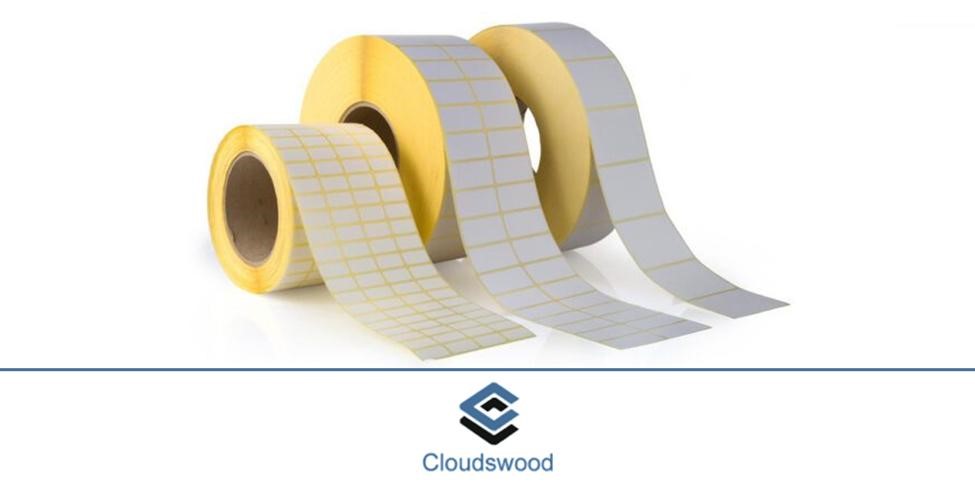

Anticipated developments in Dubai’s labeling emphasise cutting-edge technology for improved efficiency and conformity. The increased use of smart labeling technologies, such as RFID and advanced barcodes, enhances inventory tracking and supply chain management precision.
A heightened focus on sustainable labeling aligns with Dubai’s environmental consciousness. As Dubai aims to become a global economic hub, these anticipated advances showcase efforts to stay at the forefront of technology and sustainability, fostering a vibrant and innovative business environment.
Regulatory Compliance and Standards
In Dubai, ensuring compliance with regulations in a fast-paced business environment is essential for businesses that utilise thermally transferred barcodes. Conforming to local regulations ensures exact information about the product, traceability, and consumer safety. Conformity to international standards, ensures the supply chain is interoperable.
Keeping up-to-date with the changing standards and regulations is vital, as it helps companies navigate the ever-changing landscape while ensuring operational effectiveness and credibility in the marketplace.
Adhering to Dubai’s Labeling Regulations
Conforming to the Dubai labeling regulations is vital for all businesses within the city. Following local guidelines will ensure the accuracy of product information and increase consumer confidence. Companies must comply with regulations regarding the product’s safety, language, and identification.
Using solutions such as thermal transfer barcode labels facilitates entry into the market and shows the commitment to ethical and legally sound methods in Dubai’s dynamic and well-regulated market.
Ensuring Compliance in a Smart City Environment
Ensuring compliance in a Smart City like Dubai requires aligning technological solutions, such as thermal transfer barcode labels, with the city’s smart initiatives. Businesses must adhere to data privacy, cybersecurity standards, and interoperability to integrate seamlessly into the interconnected infrastructure.
Embracing smart labeling technologies is essential for transparency and efficiency. As Dubai advances in its Smart City journey, ensuring compliance means leveraging innovative solutions that meet regulatory standards and contribute to the city’s vision of a connected and intelligent urban ecosystem.
Conclusion
Integrating thermal transfer barcode labels is pivotal in advancing Dubai’s Smart City goals. These labels act as information gateways to enhance efficiency, supply chain visibility, and sustainability, aligning seamlessly with the city’s commitment to innovation. Their adoption underscores Dubai’s dedication to cutting-edge technology and operational excellence.

